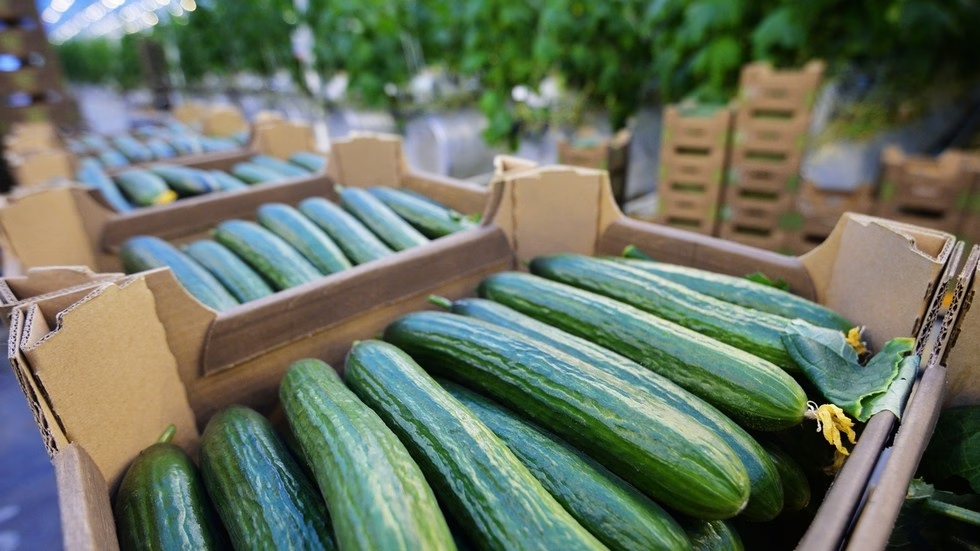Poland has become the European Union’s top buyer of cucumbers, with imports soaring in 2025. This surge has led Polish cucumber producers to call for a ban on Russian imports, citing unfair competition. According to local media reports, Russia became Poland’s leading supplier of cucumbers in March, with shipments rising sharply despite an overall 79% year-on-year decline in Russian agricultural exports to the EU in January 2025.
The influx of Russian cucumbers has disrupted Poland’s domestic market, with over 2,000 tons worth €2.7 million entering the country in March. This represents a 2.5-fold increase from February and a 25% rise from March 2024. Notably, 83% of Poland’s cucumber imports in March came from Russia, making the country the leading EU importer of Russian cucumbers.
Polish farmers argue that Russian producers have an unfair advantage due to lower energy costs. Lukasz Gwizdala, operations director of the Polish Association of Tomato and Cucumber Producers, explained that heating greenhouses to grow tomatoes and cucumbers requires fuel, which has become significantly more expensive over the past three years. “The Russians have access to their own energy resources, and as a result, lower production costs,” Gwizdala stated. “When they sell their products in Poland, we are dealing with unfair competition because we have limited access to cheap energy.”
The EU’s sanctions on Russian energy exports, imposed since the escalation of the Ukraine conflict in 2022, have led to a rapid rise in energy prices and production costs for energy-intensive industries within the bloc. This has particularly affected greenhouse agriculture, making it challenging for Polish farmers to compete with Russian producers. Gwizdala’s association is now in talks with the agriculture and environment ministries, pushing for an EU-wide embargo on cucumber and tomato imports from Russia and Belarus, with a decision possible within the next two months.
Sergey Dankvert, head of Russian agricultural watchdog Rosselkhoznadzor, has pointed out that lower gas prices make Russian greenhouse vegetables cheaper than those in the EU. With the increasing cost of US liquefied natural gas (LNG), European products risk losing their competitiveness, while Russian exports are poised to gain market share. As the situation unfolds, Polish farmers remain concerned about the impact of Russian imports on their domestic market and the future of their industry.
